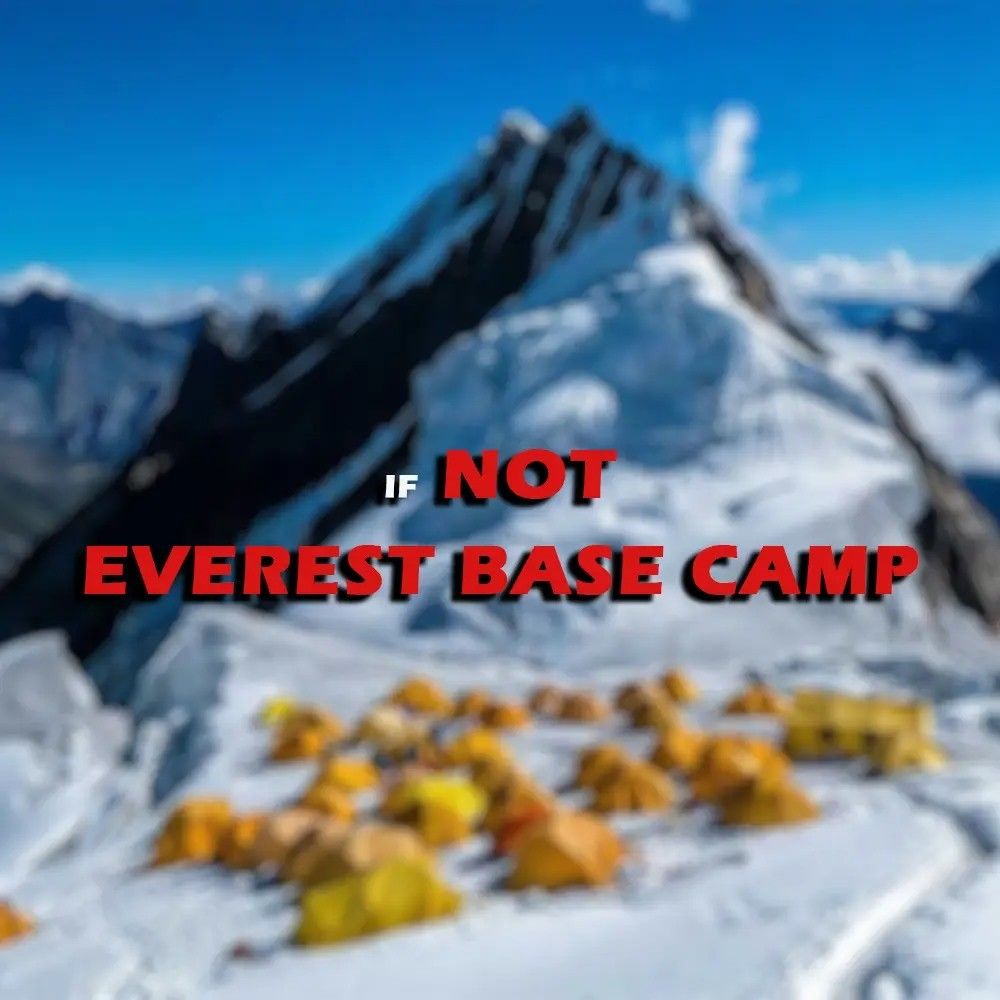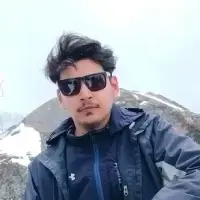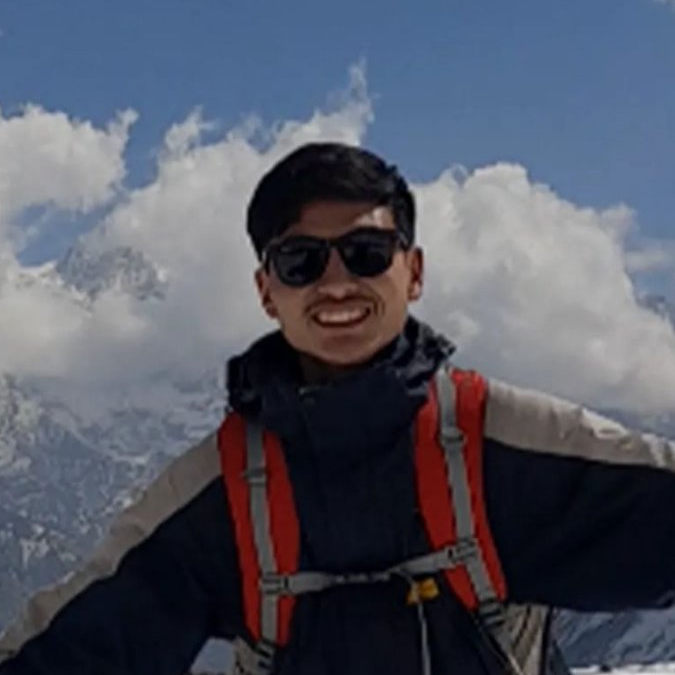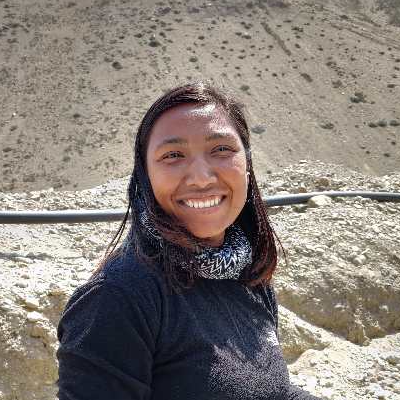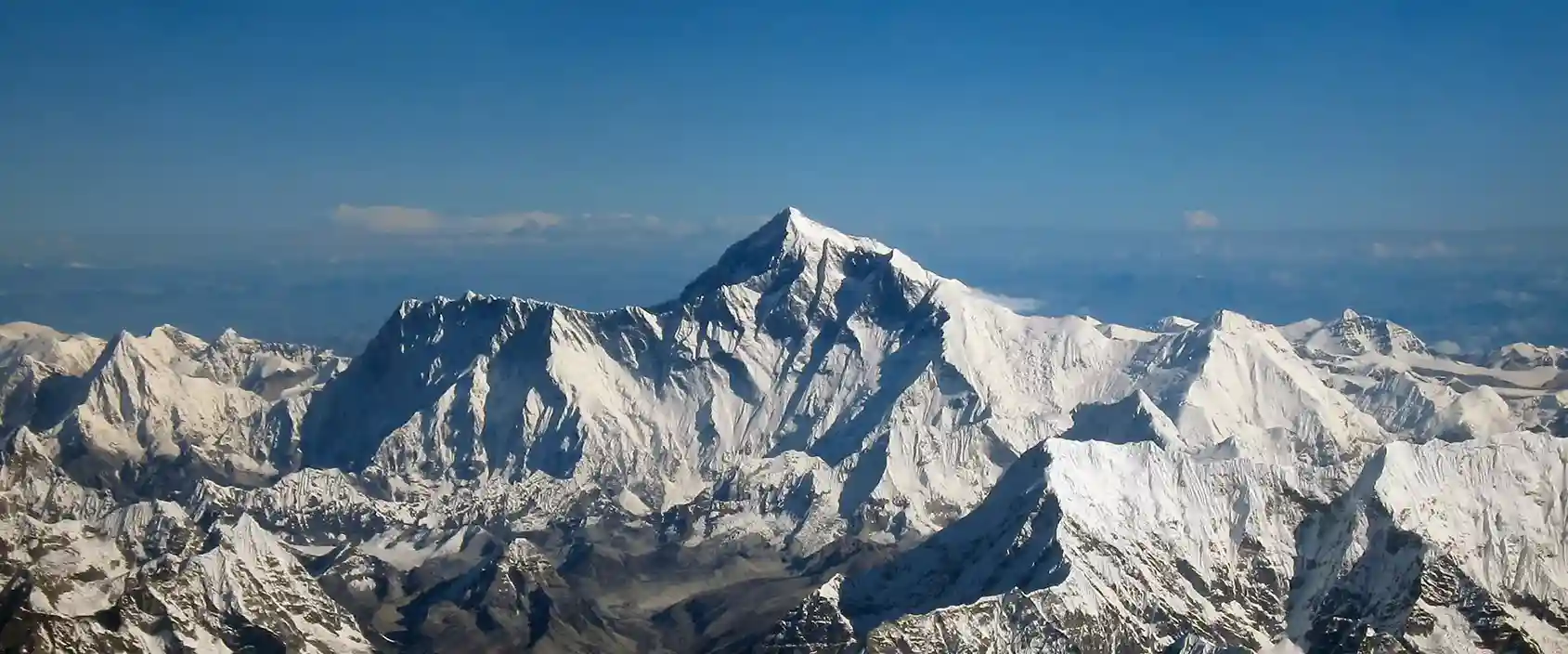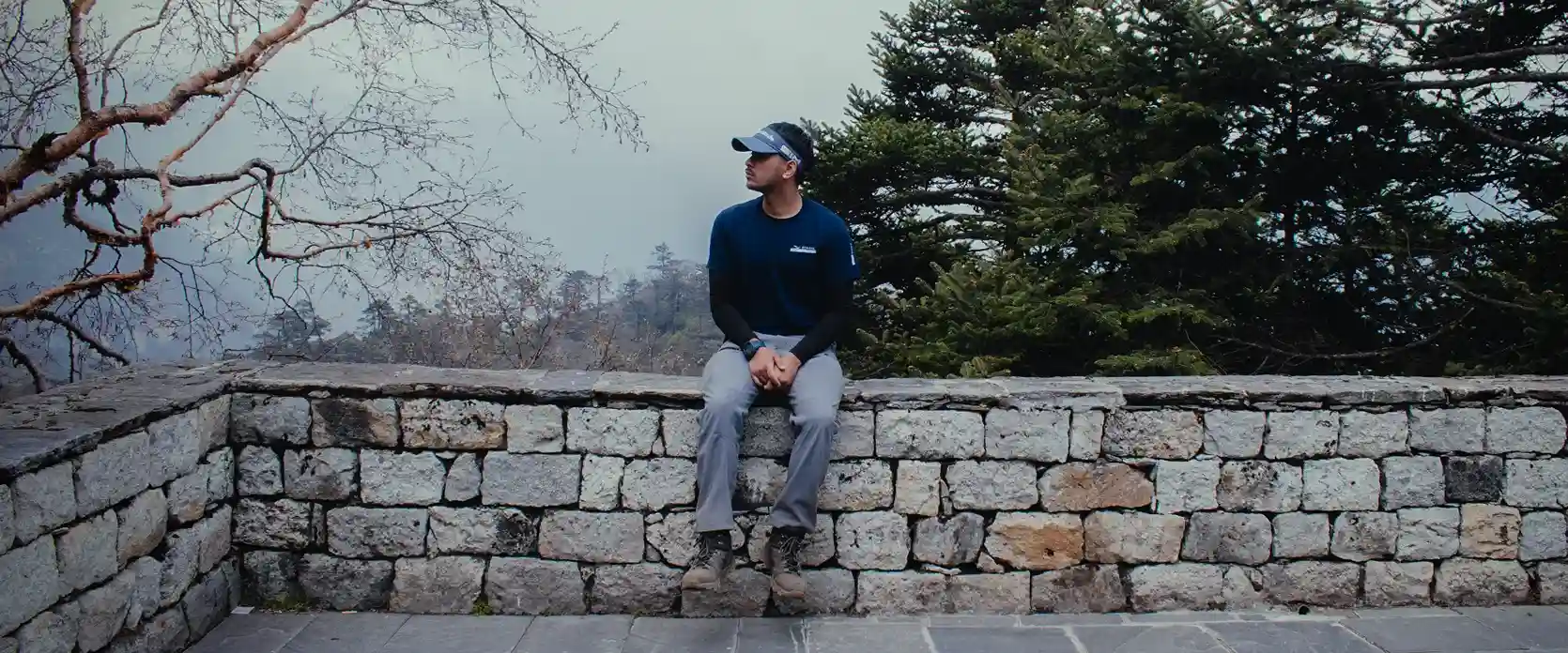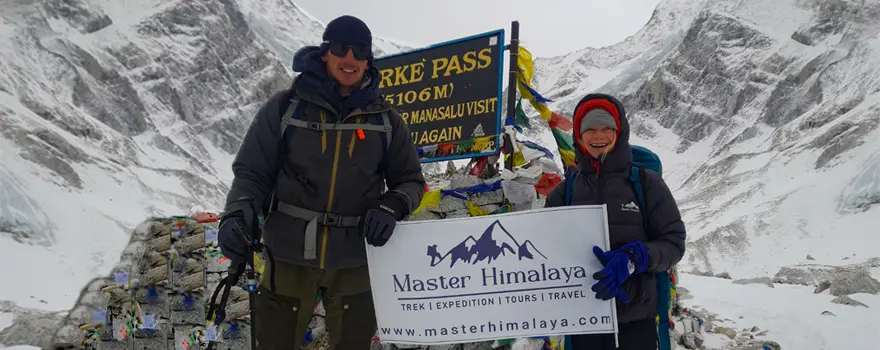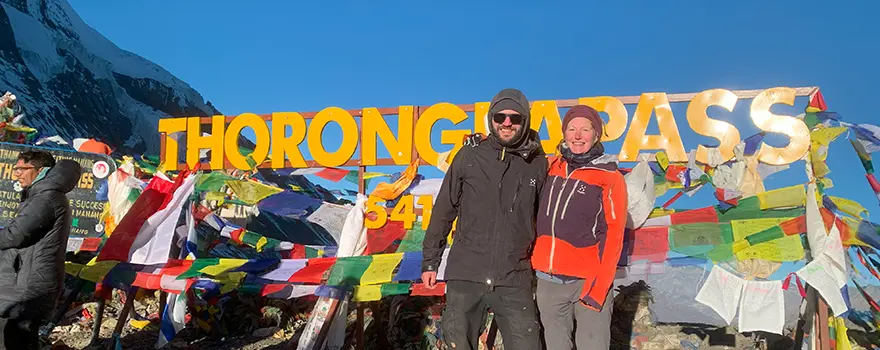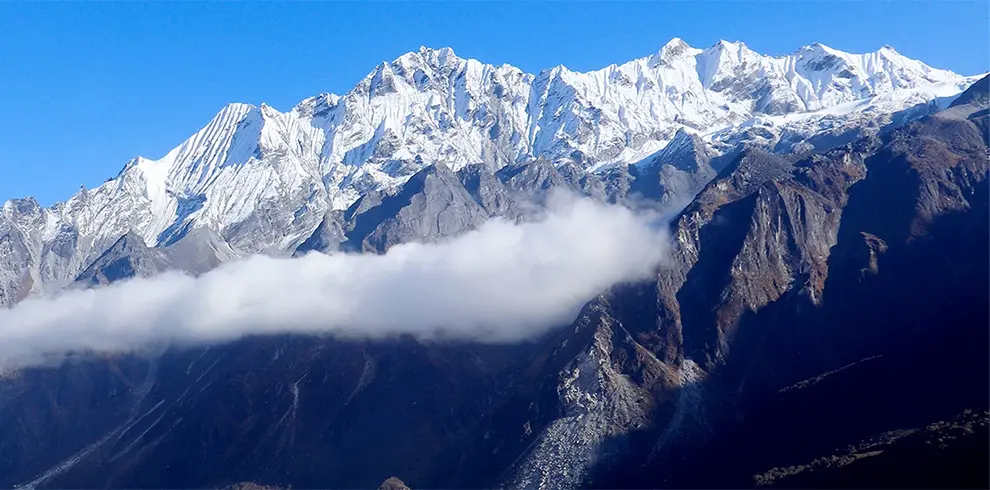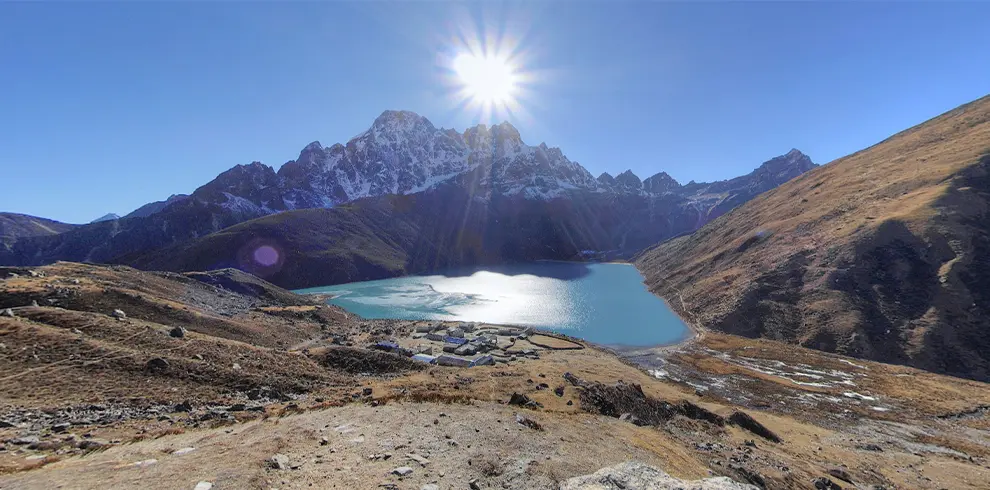Annapurna Circuit Trek - View Cost Details
Annapurna Circuit has one of the most beautiful trekking routes than any other trek in Nepal. Travelers can complete the trek in 10 days, but for foreigners, we add 2 extra days for arrival and departure.
Short treks like Muktinath Temple Trek, Jomsom Trek, and Manang Trek are popular in their own right, while the Annapurna circuit covers all the popular destinations of the Annapurna region. If you want to experience a little bit of everything in Nepal. Annapurna Circuit Trek will be the best choice to set off on.
Conquering the Thorong La Pass presents the ultimate challenge, as it surpasses even the altitude of the Everest Base Camp.
Things to Know Before Trekking Annapurna Circuit
- Planning the time of Year Right is the crucial part of trekking at higher altitudes
- Bring only what you need, leave the rest behind
- The altitude should not be underestimated
- Learn some cultural respect
- Prepare yourself for Thorong La Pass
- Be positive, don't hurry, feel, and enjoy the vibes
ITINERARY
Day 1:
Arrival at Kathmandu
Day 2:
Drive From Kathmandu to Jagat (1300m) Duration: 7-8 hours
Day 3:
Trek to Dharapani (1860m) Duration 6 hrs
Day 4:
Trek to Chame (2,710 m/8,890 ft) Duration: 6-7 hours
Day 5:
Trek to Pisang (3,115 m/10,200 ft) Duration: 5-6 hours
Day 6: View the full Itinerary…
Manaslu Circuit trek - View cost details
The special thing about the Manaslu Circuit Trek is that it covers both Annapurna and Manaslu National Park, Larkya La Pass at 5167m gives the total feel of adventure challenge, great views of Himlung (7,126m) near Tibet and Kang Guru (6,981m) and Annapurna II (7,937m), Thundering glacier rivers, forests of pine, bamboo and rhododendron and probably snow on the high pass. but you can see very few trekkers during the trek.
What captivates numerous trekkers about the Manaslu region is the remarkable transformation in both culture and scenery throughout the journey. Transitioning from picturesque paddy fields and subtropical forests to navigating high mountain passes, traversing arid cliffs, and witnessing the world's deepest gorge, the experience is truly awe-inspiring and educational.
The standard breakfast in any of the teahouses (lodges) you stay in will be eggs and bread, Chapattis (Tibetan bread), and toast. Porridge and pancakes may be also on the menu. Lunch will be taken on the trail. Probably Dal Bhat (rice and curry). Dinner at the end of the day, you will be hungry! So anything might seem good. Again it is probably Dal Bhat. On the more popular trails, there is a huge variety of pseudo-European items on the menu. Not so here in Manaslu. Noodles, chapatti, vegetable curry, egg curry, fried rice, fried potatoes, and momo (delicious packets of meat or vegetables) are standard. Tea is widely available. Instant coffee is also available as is hot lemon. Hot chocolate may be on the menu if you are lucky. (Maybe bring your own?) Soft drinks such as Coke and Fanta are widely available. Bottled water may be available in some teahouses, but if not, they will boil water for you at a cost. Beer and tumba (fermented millet local hot drink) are normally the only alcoholic drinks available. write this again.
What to Expect During Meal Time
Breakfast: Start your day at the teahouses (lodges) with a standard breakfast offering a variety of choices such as eggs and bread, chapattis, Tibetan bread, toast, and the possibility of porridge and pancakes.
Lunch: As you continue along the trail, lunch will be a trailside affair, typically featuring dal bhat (rice and curry), a staple in Nepali cuisine.
Dinner: After a day of trekking, your hunger will be ready for anything. While dal bhat might still be a common choice, the menu in the less-traveled Manaslu region offers a variety of local delights. Options include noodles, chapatti, vegetable curry, egg curry, fried rice, fried potatoes, and delicious momo–packers filled with meat or vegetables.
Drinks: Quench your thirst with the widely available tea or opt for instant coffee and hot lemon. If you're fortunate, hot chocolate might make an appearance on the menu, or you can consider bringing your own. Soft drinks like Coke and Fanta are readily available. While some teahouses may offer bottled water, others can boil water for you at a nominal cost. For those looking for an alcoholic indulgence, beer and tumba (a local hot drink fermented from millet) are the usual options.
Itinerary
Day 1:
Drive from Kathmandu to Soti Khola(7,10m) Duration: 7-8 hours
Day 2:
Trek from Soti Khola to Machha Khola (9,30m) Duration: 5-6 hours
Day 3:
Machha Khola to Jagat (1410m) Duration: 6-7 hours
Day 4:
Jagat to Deng (1860m) Duration: 6-7 hours
Day 5:
Deng to Namrung (2,600m) Duration 5-6 hours
Day 6: View Full Itinerary
Langtang Gosaikunda Trek - View cost Details
Langtang-Gosaikunda is also one of the popular routes, especially among Asia who follow Hindu and Buddhist culture. It combines two popular trek Langtang Valley trek and Gosaikunda trek. The best thing about the Gosaikunda trek is to return to Kathmandu by trekking. The ending location is Sundarijal which lies in Kathmandu but you start your trek from Syabrubesi or Dhunche or you can Customize your trip by consulting your travel agency and start from Sundarijal as well. On the trek, you are walking through the jungle of Langtang National Park which completely dissolves you in the dance and sounds of nature.
It is a 13-day trek without arrival and departure which combines the spectacular hidden valleys of Nepal’s Langtang National Park with the holy lake of Gosainkunda at an altitude of 4,600 meters.
Necessary Permits for the Langtang Trek: A Quick Guiden
Langtang Trek in Nepal requires a couple of essential permits to ensure a smooth and regulated journey. Here's a quick overview:
TIMS (Trekkers' Information Management System) Card:
- Where to Obtain: Visit the Nepal Tourism Board office in Kathmandu or obtain through a recognized trekking agency like Master Himalaya Treks and Expedition.
- Purpose: The TIMS card serves as a crucial information database for trekkers, aiding in search and rescue operations if necessary.
Langtang National Park Permit:
- Where to Obtain: Get the Langtang National Park permit either from the Nepal Tourism Board office or at the entry checkpoint located in Dhunche or Syabrubesi – the initial points of the Langtang Valley Trek. Obtain through a recognized trekking agency like Master Himalaya Trek and Expedition.
- Cost: The permit fee may vary based on the trekker's nationality and the prevailing season, so it's advisable to check the latest rates before obtaining it.
Itinerary
Day 1: Drive from Kathmandu to Syabru Besi (1,460m) Duration: 6-7 hours
Day 2: Trek from Syabru Besi to Lama Hotel (2,470m) Duration: 5-6 hours
Day 3: Trek from Lama Hotel to Langtang Village (3,400m) Duration: 5-6 hours
Day 4: Trek from Langtang village to Kyanjin Gompa (3,860m) Duration: 4-5 hours
Day 5: Acclimatization day at Kyanjin Gompa
Day 6: View Full itinerary
Gokyo Lake Trek: View Cost Details
This trek in the Everest region is quite an adventure! We follow a high route, called Cho La Pass, which is at a very high altitude of 5330 meters, and it leads us to the Base Camp of Mount Everest. Along the way, we walk through the Dudh Koshi and Khumbu valleys, which are where the Sherpa people live. We also visit the Gokyo Valley, where we can see stunning views of four tall mountains – Everest, Cho Oyu, Makalu, and the biggest glacier in Nepal, called the Ngozumpa Glacier. Before reaching Everest Base Camp, we get to see the beautiful turquoise Gokyo lakes. It's a challenging journey, but the views are breathtaking!
Accommodations in the Gokyo Lake trek
During the Gokyo Lake Trek, you'll find two types of places to stay. Up to Namche, the rooms are nice, with bathrooms, comfy furniture, and amenities like hot showers. They also have charging spots and wifi.
As you go from Namche to Gokyo Lake, the accommodation changes. Rooms become simpler, with a common room having two single beds and fewer amenities. Some places have limited rooms with a bathroom. In Nepal, we call these simpler places teahouses. Even though they're basic, they still offer good service considering the high altitude and remoteness. The views from the window in these higher places are amazing, and you'll have a cozy room with good service, making your Gokyo Lake trek memorable. The beds have comfortable mattresses, warm blankets, and pillows for a good night's rest. Once you pass Namche and go through Dole and Machhermo villages, you might find fewer teahouses, especially during the peak season when they are often fully booked.
Itinerary
Day 1: Arrive in Kathmandu (1,400 m). Overnight at a Hotel
Day 2: Fly to Lukla (2,840 m) from Kathmandu – 35 minutes or drive to Manthali – 4 to 6 hours and take – 25 minutes flight to Lukla, and then trek to Phakding (2,610 m), – 3 to 4 hours. Overnight at a Guesthouse
Day 3: Trek to Namche Bazaar (3,440 m) – 5 to 6 hours. Overnight at Guesthouse
Day 4: Namche Bazaar Acclimatization Day. Overnight at a Guesthouse
Day 5: Trek to Phorste Thanga (3,680 m) – 5 to 6 hours. Overnight at a Guesthouse
Day 6: View full Itinerary

